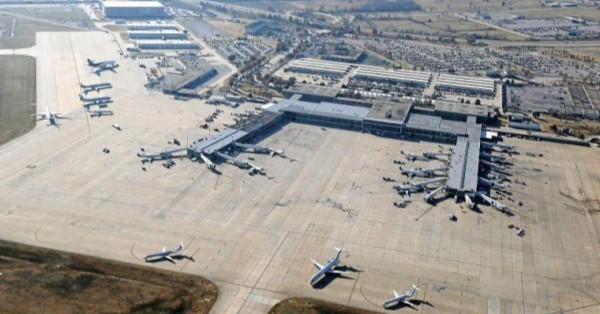FCC’s Proposed Changes to CBRS Face Industry Pushback
Why CBRS Is Critical for Innovation and Competition
Key Industries That Rely on CBRS and May Be Affected
The core issue is the potential disruption to the vibrant CBRS ecosystem. The letter highlights the wide range of use cases already benefiting from CBRS, demonstrating its versatility and impact:
- Rural Broadband Deployment: CBRS has proven crucial in bridging the digital divide, providing cost-effective broadband access to underserved rural communities. Increased power levels could negatively impact these deployments, potentially disrupting existing services and hindering future expansion.
- Competitive Mobile Services: CBRS has enabled smaller carriers and new entrants to compete with established mobile operators, fostering competition and driving innovation in the mobile market. The proposed changes could stifle this competition, consolidating power in the hands of larger players.
- Manufacturing and Industrial Private Networks: Industries are leveraging CBRS to create private networks for automation, robotics, and other critical applications, increasing efficiency and productivity. Changes to the framework could jeopardize these deployments and hinder the growth of Industry 4.0.
- Transportation and Logistics Connectivity: Airports, shipping terminals, and other transportation hubs rely on CBRS for seamless connectivity, supporting everything from baggage handling to passenger services. The proposed changes could disrupt these critical operations.
- School and Library Access: CBRS has been instrumental in providing internet access to schools and libraries, particularly in underserved communities. The potential disruption to these services would have a significant impact on educational equity.
The Potential Impact of the FCC’s CBRS Proposal
The proposed changes, the letter contends, would jeopardize these existing deployments and stifle future innovation. Furthermore, they would render much of the substantial work already invested in CBRS development – a decade-long collaboration between the FCC, federal agencies, and industry – effectively wasted. This includes ongoing efforts to expand the unencumbered portion of the spectrum band, a critical process involving the NTIA, the U.S. Navy, and the FCC. This collaborative effort ensures both commercial viability and national security requirements are met.
Beyond the technical concerns, the letter raises concerns about the potential for these changes to create an uneven playing field and stifle competition. They argue that the ultimate result could be a return to reliance on “off-the-shelf managed solutions offered by the largest carriers,” limiting the ability of smaller players to innovate and compete. This implies a potential power grab by larger telecommunications companies, potentially at the expense of smaller businesses, organizations, and the broader public. The letter suggests the changes would undermine the FCC’s bipartisan vision for CBRS as a lower-power, small-cell band that promotes competition and broad access.
A Coalition of Opposition: Who Is Fighting the CBRS Changes?
The signatories of the letter represent a diverse cross-section of stakeholders, demonstrating the widespread concern about the potential negative impacts of the proposed changes:
- Tech giants: Amazon and Hewlett Packard Enterprise
- Cable and internet providers: Charter, Comcast, and Cox
- Public access organizations: American Library Association and the Schools, Health & Libraries Broadband (SHLB) Coalition
- Industrial players: Deere & Company and Lockheed Martin
- Wireless industry associations: WISPA
What’s Next for CBRS? The Future of Wireless Innovation at Risk
This broad coalition underscores the significant opposition to the proposed changes. They are urging the FCC to reconsider these proposals and protect the CBRS framework, ensuring its continued role in driving innovation, expanding access to critical connectivity, and promoting competition in the telecommunications market. The future of CBRS, and the diverse ecosystem it supports, hangs in the balance. The FCC’s decision will have long-lasting implications for the future of connectivity in the United States.





























